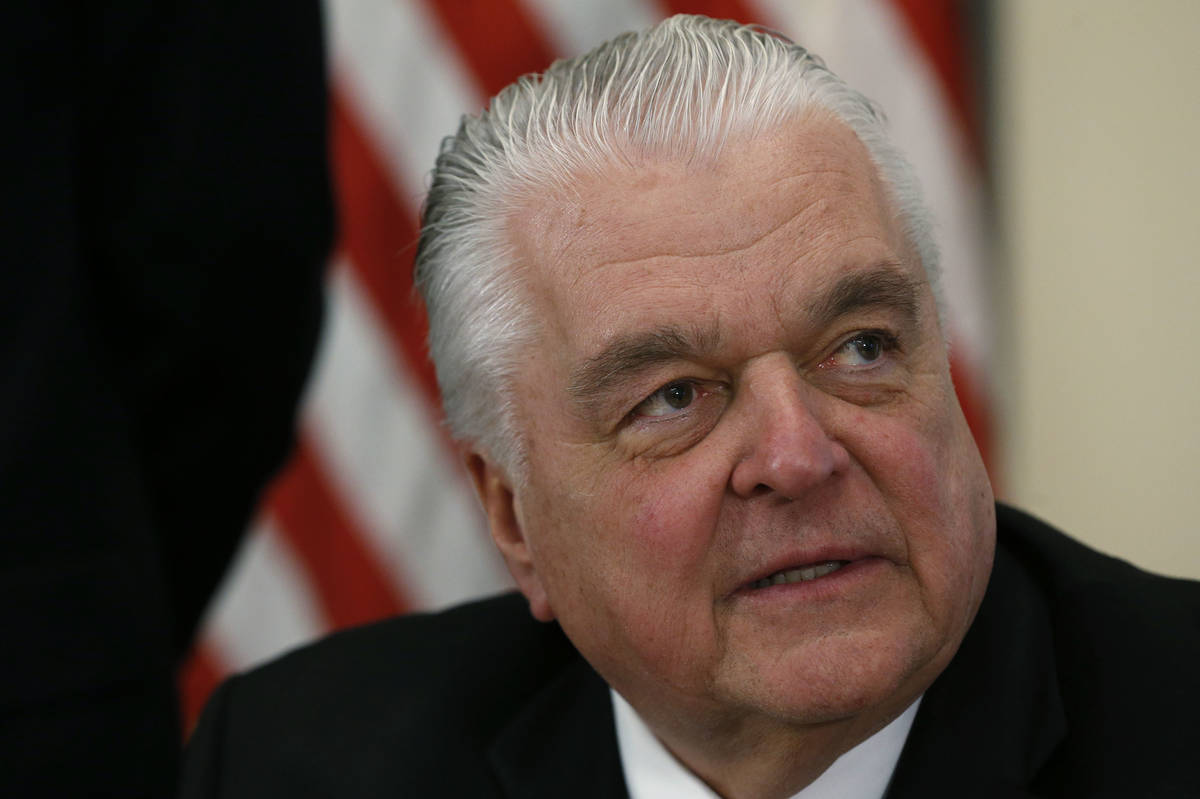Sisolak extends Nevada eviction moratorium
Nevada’s eviction moratorium will be extended another 60 days through the end of May, Gov. Steve Sisolak announced Tuesday. But he added that this will be the final extension on the ban from the state.
The extension comes a day after the Centers for Disease Control and Prevention extended the federal government’s separate evictions ban through June 30, one month after the state’s will expire.
“We must transition out of our eviction moratorium, but do so in a way that protects tenants and landlords to the greatest extent possible,” Sisolak said during a press conference Tuesday.
The governor said the state’s extension was needed to give state and local agencies more time to distribute federal rental assistance and to set up programs on rental mediation.
“Originally, I did not plan on extending this moratorium today, but I’m not going to put thousands of Nevadans at risk of losing their homes, while funding exists to help them and the landlords,” Sisolak said.
The moratorium applies to tenants who can’t pay or are behind on their rent and requires them to give a declaration to their landlord, but it does not stop all evictions. Exceptions include lease breaches, unlawful activity and nuisance issues. The state’s moratorium, which went into effect in December and was set to expire Wednesday, lays out how the federal ban applies within Nevada.
Transition period
The gap between the end of the state’s moratorium and the federal government’s will act as a sort of transition period. Eviction processes will be able to restart in Nevada beginning June 1, but the CDC’s ban will prevent people from actually being evicted until the federal moratorium expires.
Shannon Chambers, president of the board of directors for the state-affiliated nonprofit Home Means Nevada, said that the group is working on a program that will be implemented over the next two months that will, in part, prioritize the thousands of eviction cases currently pending in the court systems around the state.
Sisolak said he also expects that programs will be set up within the next two months that will put rental assistance money directly into the hands of landlords.
“Landlords are struggling too. They deserve to be paid for the last year. And the money is there to make them whole,” Sisolak said.
Susy Vasquez, executive director of the Nevada State Apartment Association, said that while the group hoped the state’s moratorium would expire, it understood the need.
“Landlords are in need of their rent payments to operate these communities and the continuation of nonpayment impacts not only the operators but small business owners, service providers, product suppliers and trades. The association realizes the 60-day extension will allow for preparation for rental assistance programs that will help a significant number of tenants and will also afford them the ability to return to work and begin the process of returning to normalcy and the ability to pay rent,” Vasquez said.
The economic fallout of the pandemic hit Nevada especially hard, particularly in Las Vegas, where the gaming and tourism-heavy economy suffered as people chose to stay home to avoid big crowds over fears of contracting the virus. At one point, the Las Vegas region’s jobless rate ranked as the second highest among major metropolitan areas according to federal data.
With casinos, restaurants, hotels and other venues starting to welcome more people back as more residents become vaccinated, the state is showing some signs of recovery. But many are still feeling the lingering economic effects of the pandemic, and Nevada’s 8.3 percent unemployment rate still ranks as the sixth highest in the nation.
“What we’re seeing is that a lot of tenants in Nevada are desperate. They are very delinquent on the rent, and a lot are just getting back to work,” said Aaron MacDonald, an attorney who works in the Consumer Rights Project at Legal Aid Center of Southern Nevada.
The extension, MacDonald added, will give renters a couple more months to get back on their feet and give the county more time to distribute relief funds to tenants who need it most.
Relief available
In Clark County, approximately $161 million in relief is available to help roughly 40,000 households, said Kevin Schiller, assistant Clark County manager, and additional funds are expected to come in the near future from the latest relief bill passed by Congress. Since July, the county has given out about $100 million in relief, but Schiller said there are currently some 23,500 applications in the backlog for the rental assistance program.
Schiller and the other officials urged Nevadans to engage in rental assistance programs if they have not done so already.
“If you are nervous about losing your home because you’ve been negatively impacted by this pandemic, now is the time to engage with rental assistance programs,” Sisolak said. “Please take advantage of this. Help is here.”
Schiller added that those in the county’s queue for rental assistance also need to go in and update their applications, directing those in need to the county’s rental assistance web portal at chap.clarkcountynv.gov.
Contact Capital Bureau Chief Colton Lochhead at clochhead@reviewjournal.com. Follow @ColtonLochhead.











































